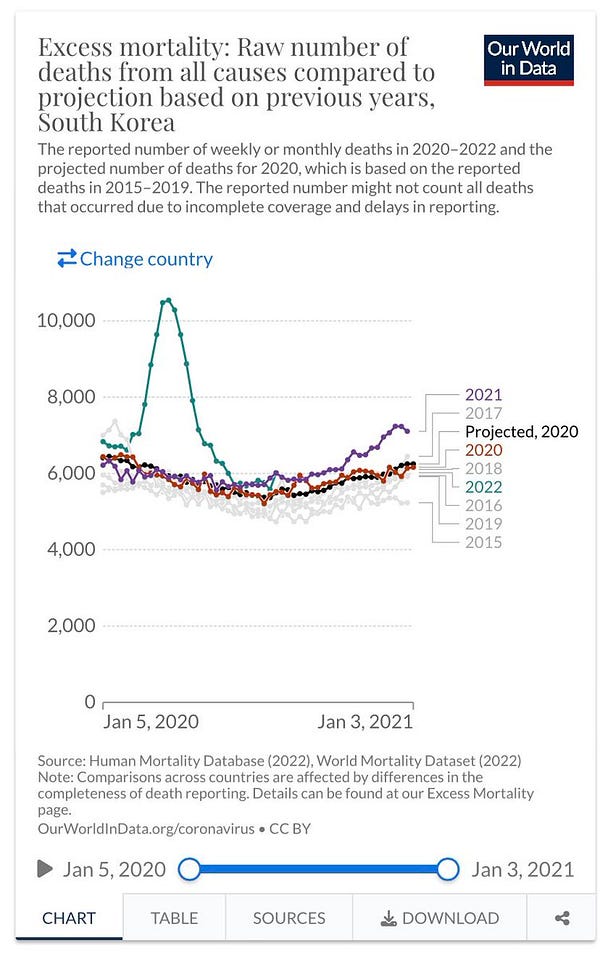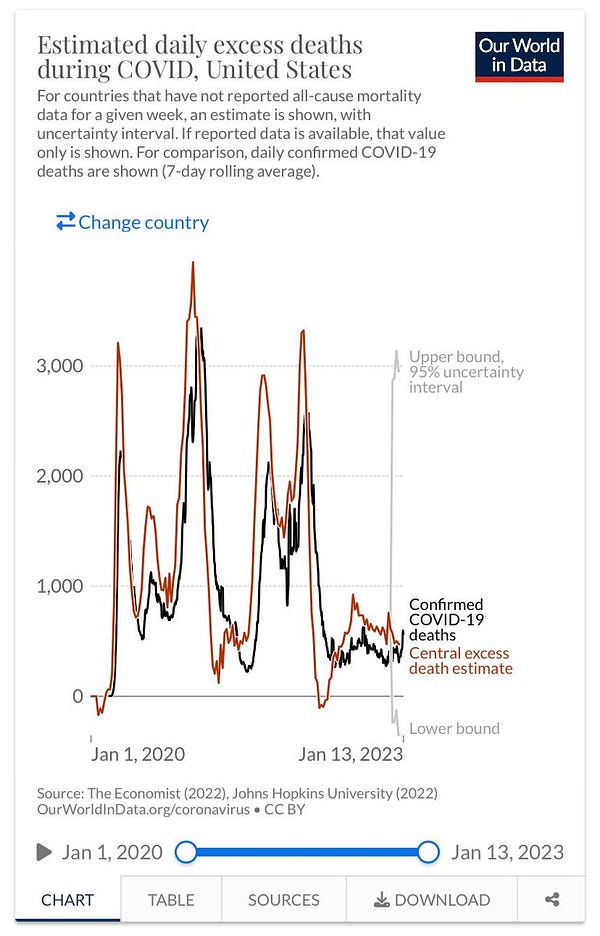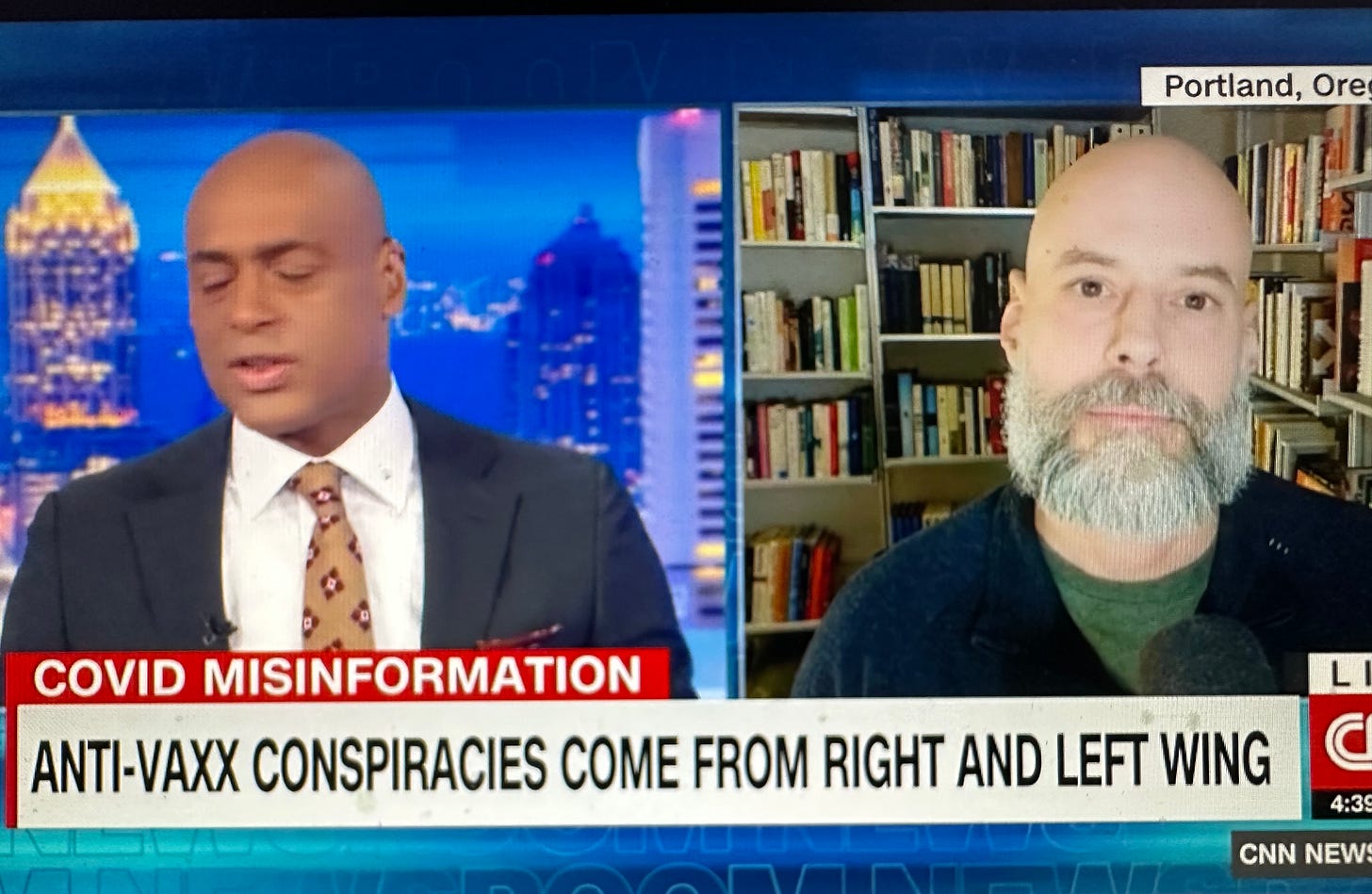No, more people aren't "suddenly dying."
We're not built for data, yet data tell important stories.
The word “nuance” comes from French and Latin words for “cloud,” and may have a further relationship with the Welsh word for “mist.” To add nuance is to obscure the relationship between extremes. Clouds split the difference between light and dark; mist blurs the distance.
The term is being thrown around a lot lately, sometimes for good reason, other times to obscure the obscuration. Nuance is impossible when you arrive at a conclusion before weighing evidence. The mist is burned away.
On Friday evening I appeared on CNN to discuss anti-vaxxers using celebrity and athlete injuries and deaths to promote the idea that vaccines are causing people to die, suddenly. While the full interview is not available online, the host, Kim Brunhuber, posted roughly half of our discussion.

One point that didn’t make this clip involves a question I hear often: if you didn’t take the vaccine, are you an anti-vaxxer? I don’t believe it’s a binary. When we discuss anti-vaxxers on Conspirituality, we’re identifying activists who specifically deploy misinformation or disinformation to promote their cause. There can be any number of reasons for doing so, from fervent belief in a globalist depopulation agenda to monetizing people’s vaccine fears by selling them supplements. What unites anti-vax activists is their online and in-real-life spreading of debunked or misleading claims, and their attempts to indoctrinate others.
I’ve seen them claim to take a nuanced view. To actually begin a nuanced conversation about modern medicine requires considering the following types of ideas.
Data show that COVID vaccines are generally safe and effective, though as with any vaccine ever produced, adverse effects are, unfortunately, to be expected
Vaccines are one of the most efficacious medical interventions ever created, though it’s not a perfect science, and continual improvements are necessary
Pharmaceutical companies operating in America’s for-profit health care system have a shameful track record of catering to corporate interests, and they’ve also produced extremely important drugs that have helped millions of people
Science communications during the pandemic were horrible on a number of levels, sometimes due to the administration leading comms, sometimes due to human error and ego, yet these agencies remain essential for leading public health initiatives
In each case (and many more), factoring in numerous variables becomes a starting point for conversation. Sadly, algorithms reward outrage, not honest debate or rigorous research. And in the case of celebrity and athlete deaths and injuries, anti-vaxxers have dutifully gamed the algorithm.
The playbook
CNN initially contacted me to discuss the case of Damar Hamlin, though in our pre-talk discussion we also chatted about Lisa Marie Presley. In both cases, anti-vaxxers began “questioning” their heart attacks in such a manner that made it seem that the COVID vaccines are to blame well before an official cause of injury or death could be offered.
This is the playbook: capitalize on the misfortune of others before anyone can begin to make sense of it.
Another tactic: “There are so many people suddenly dying” is a common framing, with a recent pseudomentary of a similar name serving as the current darling of the anti-vax set. The problem: it’s not true. There’s no data to support the notion that more people are suddenly dying. Narratives might be quicker to assess than data, but data still matter, as pointed out in an important thread by Dr Dan Wilson.














Dr Wilson is brokering in nuance, which requires patience and diligence—and reading, lots and lots of reading. Comparing charts and large data sets will never be as simple as retweeting something that feels right. We’re built for emotional shortcuts, not scientific journals.
To borrow a sentiment that Abraham Maslow made famous, when all you have is a hammer, every death becomes a nail. Anti-vax activists are quite good at bludgeoning the stories they encounter. In this case, the losers are those who desperately want credible scientific information without the obscurations of obscurers, and the families and friends of the victims—and for the injured, the victims themselves.
They deserve better.






